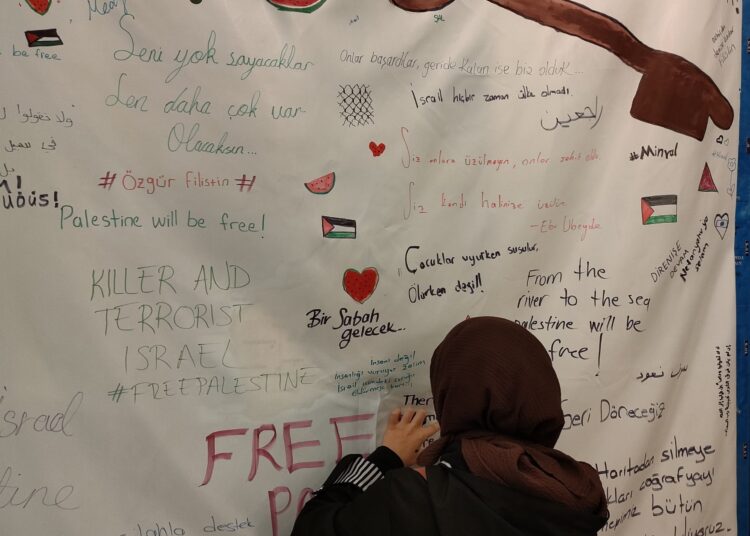Levent Kenez/Stockholm
In Turkey, where nearly 20 million primary and secondary school students returned to classes on Monday, the Ministry of Education introduced a program focusing on the “resistance of the people of Gaza in their struggle for freedom” as the first course of the school year. Titled “From Gallipoli to Gaza: Defense of the Homeland,” the lessons include historical content and feature materials with visuals of Turkish President Recep Tayyip Erdogan.
A 12-minute video prepared by the ministry and hosted on the Education Information Network (EBA) platform reports that over 40,000 innocent children, women and elderly people have fallen victim to the war. The video highlights the harsh reality that thousands of people have had their dreams, homes and schools destroyed. Hospitals have been bombed, people displaced. The fundamental human right to life has been stripped away, leaving mothers without children and children orphaned and bereft.
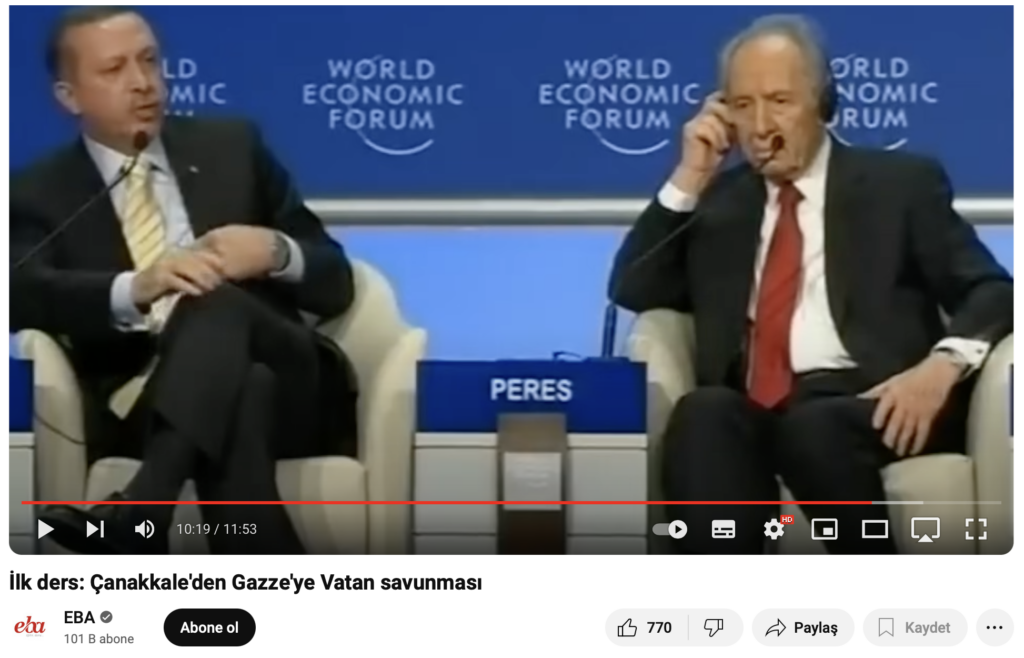
“The attacks on Gaza represent some of the most glaring and painful examples of human rights violations. While many countries have imposed symbolic sanctions on Israel, these measures have proven to be insufficiently effective. Nevertheless, Turkey’s stance against these injustices has remained clear and strong,” says the narrator of the video.
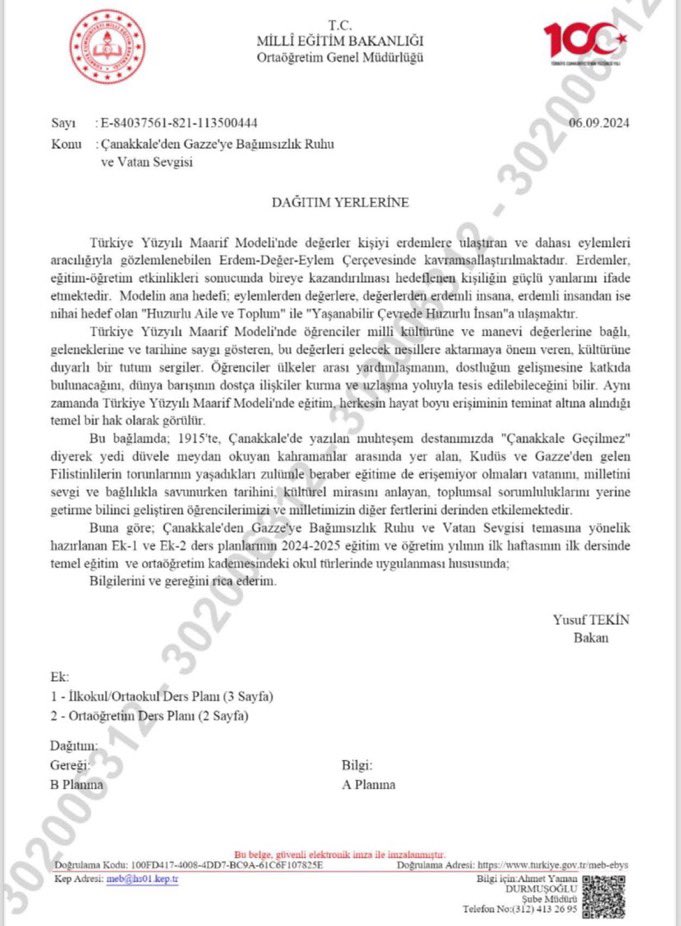
When the narrator begins discussing Turkey’s stance, the video features a segment from 2009, showcasing then-prime minister Erdogan’s outburst at the World Economic Forum in Davos, where he confronted then-Israeli president Shimon Peres. Erdogan repeatedly said, “One minute… One minute… One minute… Don’t interrupt me. You are not allowing me to speak.” He declared that he did not expect to return to Davos and stormed off the stage. This incident, widely known in Turkey as the “One Minute” incident, is remembered as a moment that garnered significant public support for Erdogan. However, after he left the panel discussion, Erdogan clarified at a press conference that his anger was directed at the moderator, not Peres — a detail that is less widely known in Turkey.
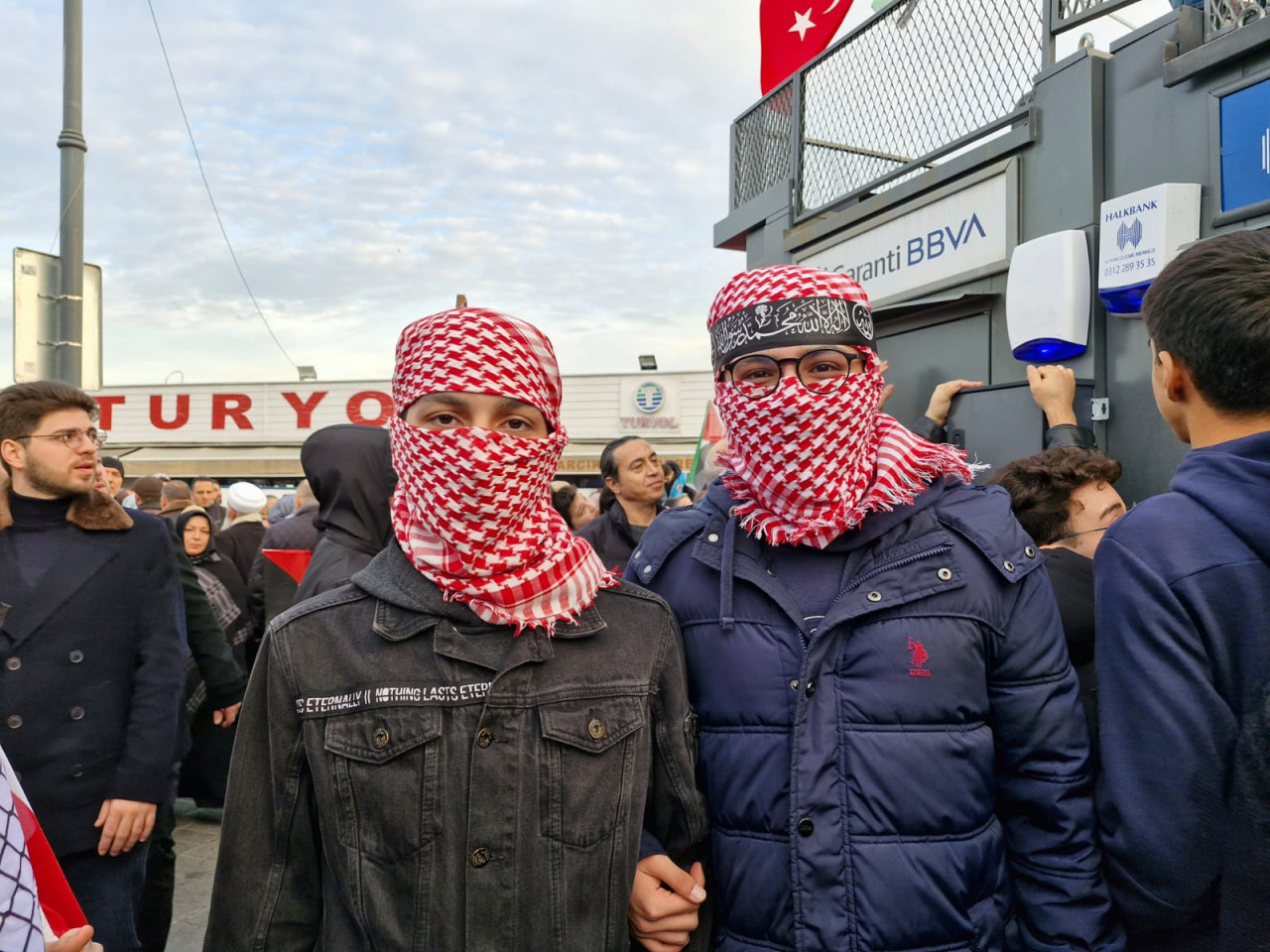
However, Erdogan’s government policy was quite different from what the video suggests. Despite making strong statements against Israel, Erdogan’s close business associates continued their dealings with Israel after October 7, 2023, when Hamas attacked Israel, followed by Israel’s retaliatory strikes that have caused a large number of casualties in Gaza. Turkish media even reported that Erdogan’s family-owned ships were involved in this trade.
Following public criticism in response to protests against Israel, the Erdogan government was compelled to adopt a tougher stance on the country. Ankara announced on April 9 that it would impose trade restrictions on Israel due to the conflict in Gaza. “The decision will remain in effect until Israel declares an immediate ceasefire and allows a sufficient and uninterrupted flow of humanitarian aid into Gaza,” the Turkish Ministry of Trade announced. The announcement included a list of 54 products subject to export restrictions. However, experts expressed skepticism about the government’s decision due to the absence of customs tariff codes in the published list. Reports in the Turkish media also suggest that trade with Israel may be continuing through third countries.
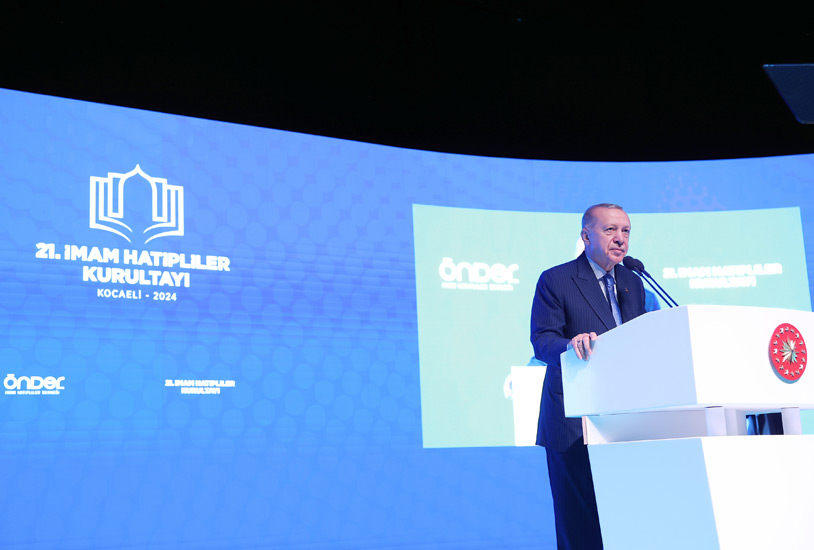
The Erdogan government has been facing further criticism from pro-Palestinian groups for allowing SOCAR (State Oil Company of the Azerbaijan Republic) to transport Azerbaijani oil through pipelines to Turkey’s southern port of Ceyhan and subsequently ship it to Israel.
Another method Erdogan has used to leverage the Gaza conflict politically involves mobilizing students through family-owned educational foundations. For example, the Turkey Youth Foundation (TÜGVA) and the Foundation for Youth and Education in Turkey (TÜRGEV) are actively involved in rallying students to protest against Israel. These foundations, led by the Erdogan family, play a significant role in promoting political Islam among Turkish youth, sometimes linking it to elements bordering on violent jihadism. Additionally, TÜGVA and TÜRGEV serve as channels for bringing young, aspiring Islamists into government positions, thereby reinforcing Erdogan’s political influence and agenda.
For instance, on the first day of 2024, tens of thousands marched in Istanbul to protest Israel’s military actions in Gaza. The demonstration, which was organized and orchestrated by TÜGVA and the National Will Platform along with the participation of 308 NGOs, began after the morning prayer at major mosques in the city. The protesters gathered and proceeded to march toward the Galata Bridge, chanting slogans in solidarity with Palestine and denouncing Israel.
TÜGVA also incorporated anti-Israel content into its summer camps for high school and middle school students
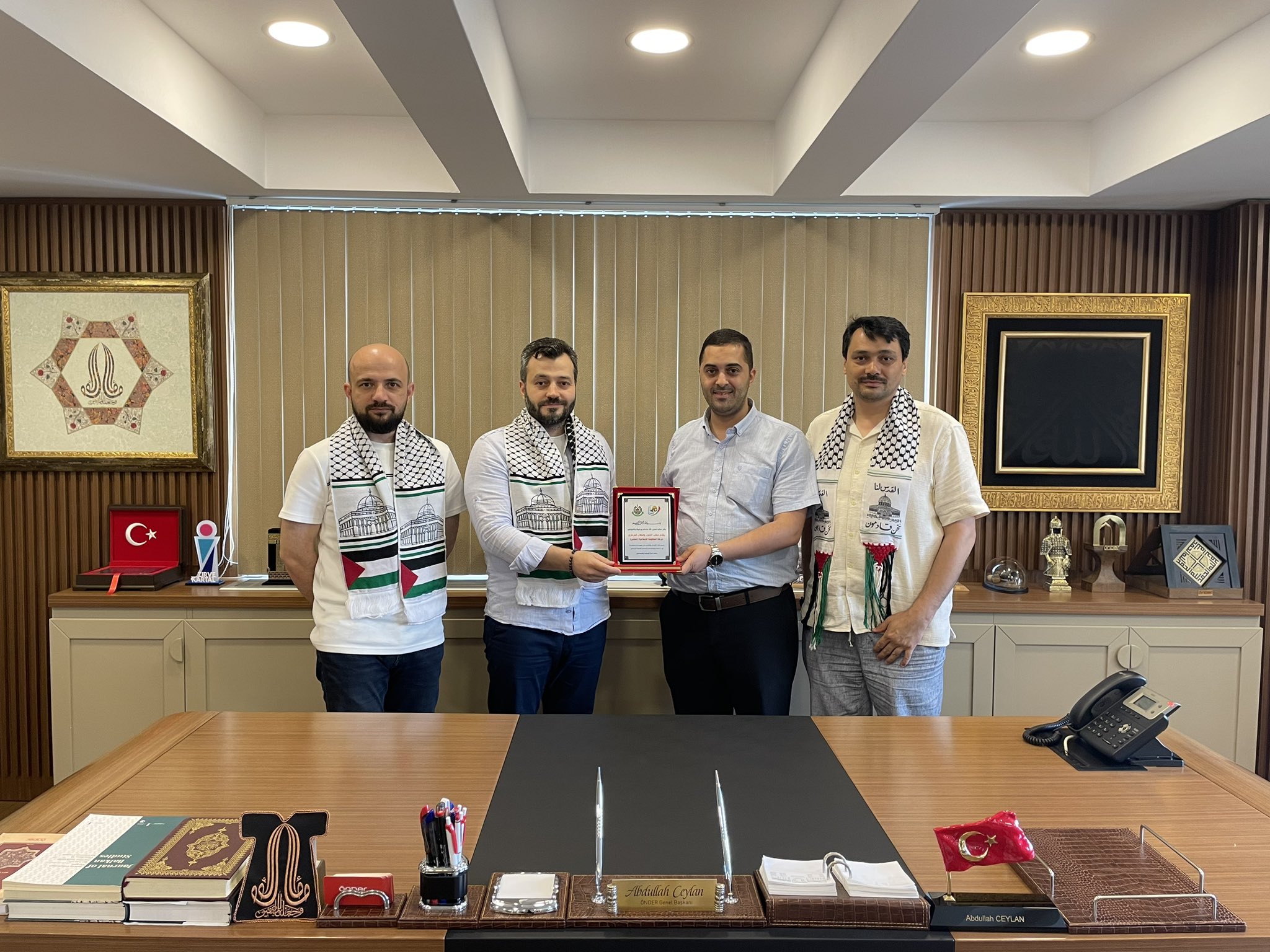
Erdogan’s target group is, no doubt, the students of religious vocational high schools, known as imam-hatips. On September 7 in Kocaeli, the Önder İmam Hatipliler Derneği (Önder Imam Hatip Association), an Islamist group known for its strong support of the Erdogan government, held an event at which Erdogan himself, recalling his own background as an imam-hatip graduate, praised these students extensively. Erdogan has claimed that Israel’s actions go beyond merely occupying Gaza, asserting that Hamas is defending not just Gaza but also Islamic lands, including Turkey.
The statement issued following the event emphasized that one of the primary agendas for imam-hatip members and Önder is the goal of “liberating Al-Aqsa Mosque and Palestine from Zionist occupation.” The statement underscored that it is an essential, moral and religious duty to stand against the aggressive stance of Israel, which has killed over 40,000 people and devastated cities in Gaza with its genocidal actions over the past year. It highlighted the necessity to continuously work towards instilling this awareness in the imam-hatip generation.
Nordic Monitor previously reported that the youth division of the Palestinian militant organization Hamas, which faces allegations of training children in combat and the use of weapons, has been strengthening its ties with Islamist and neo-nationalist youth groups, including Önder.
Ironically, Önder received €60,000 last year for a small-scale youth project under the EU’s Erasmus program. In 2022, it was awarded €52,560 for another project.

